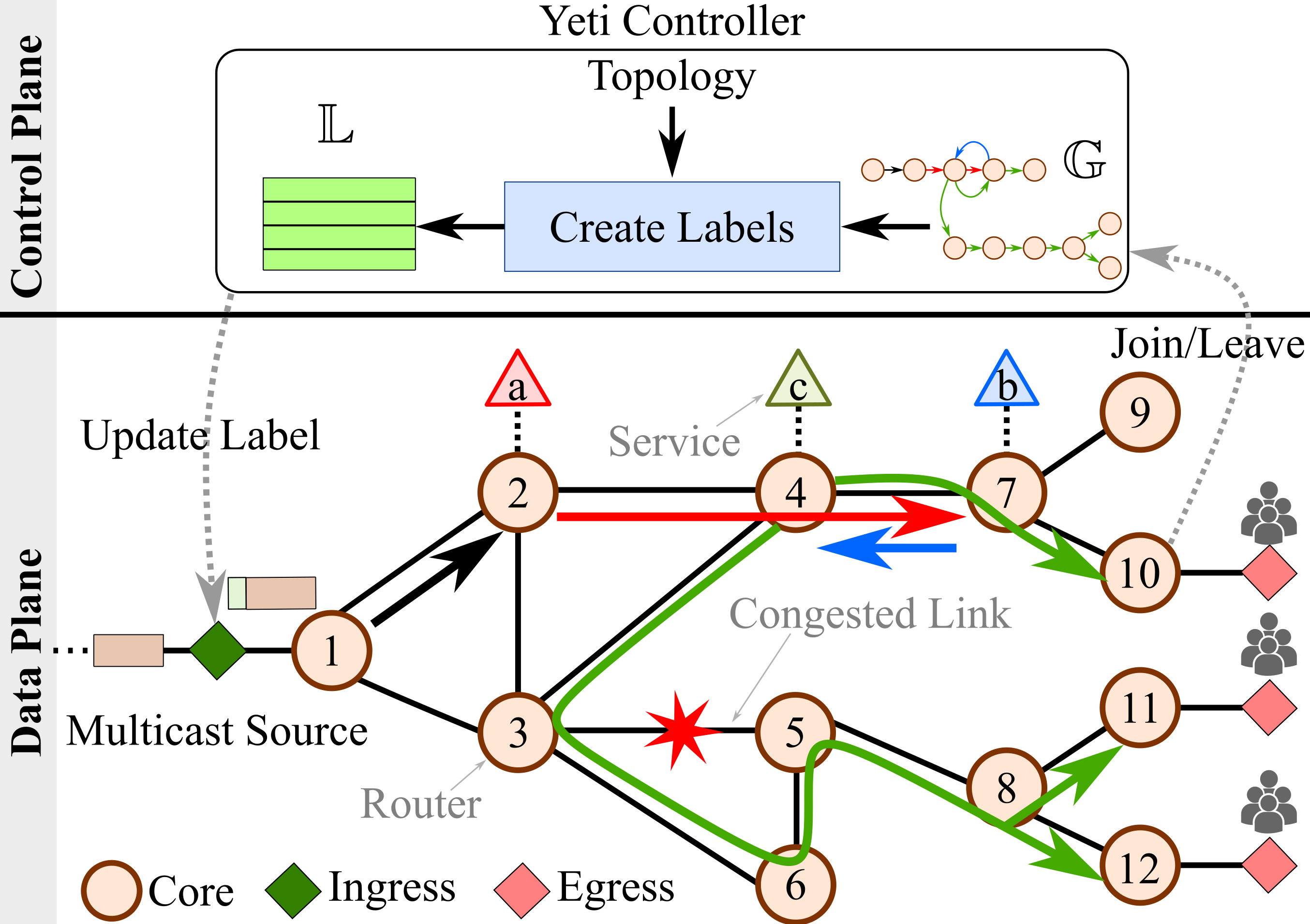Overview
Current multicast forwarding systems suffer from large state requirements at routers and high communication overhead. In addition, these systems do not support generalized multicast forwarding, where traffic passes through traffic-engineered paths or requires service chaining. We propose a new system, called Yeti, to efficiently implement generalized multicast forwarding inside ISP networks while supporting various forwarding requirements. Yeti completely eliminates the state at routers and reduces communication overhead. Yeti consists of two components: centralized controller and packet processing algorithm. We propose an algorithm for the controller to create labels that represent generalized multicast graphs. The controller instructs an ingress router to attach the created labels to packets in the multicast session. We propose an efficient packet processing algorithm at routers to process labels of incoming packets and forwards them accordingly. We prove the correctness and efficiency of Yeti. In addition, we assess the performance of Yeti in a hardware testbed and using simulations. Our experimental results show that Yeti can efficiently support high speed links. Furthermore, we compare Yeti using real ISP topologies in simulations against the closest systems in the literature: a rule-based approach and two label-based systems. Our simulation results show substantial improvements compared to these systems. For example, Yeti reduces the label overhead by 65.3%, on average, compared to the closest label-based multicast approach in the literature.

Publications
- ConferenceYeti: Stateless and Generalized Multicast ForwardingIn Proc. of USENIX NSDI 2022Soon!